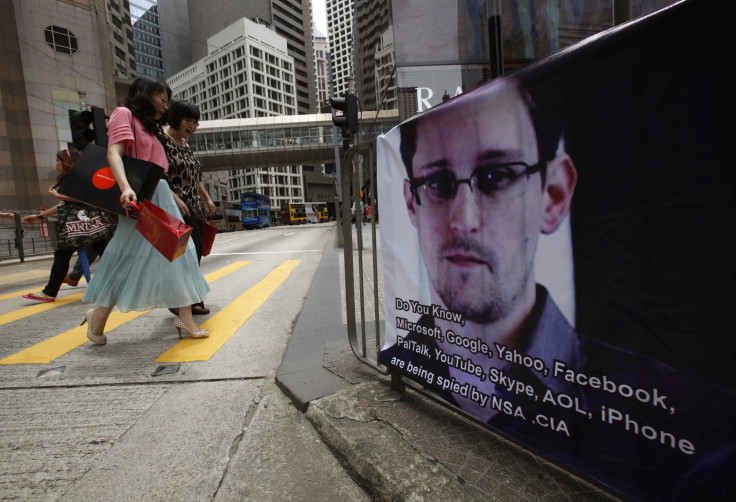Snowden’s Flight From Hong Kong Puts Obama In Tight Spot

The White House found itself in a tricky political situation Monday, a day after Edward Snowden, who is charged with espionage for leaking classified national security documents, left Hong Kong for Russia. He is believed to be seeking asylum in Ecuador, and his current whereabouts are unknown.
Legal experts believe the developments of the last 36 hours have lessened the odds that Washington will be successful in getting Snowden extradited, at least in the near future. That leaves the administration to balance forcefully seeking his return to the United States without appearing weak if it loses the battle.
Snowden’s current location is unknown, after flying from Hong Kong to Moscow Sunday. He has obtained temporary refugee travel documents from Ecuador, which said it is currently reviewing a request for asylum from Snowden. He was rumored to be flying to Cuba but missed the flight reporters suspected he might take. WikiLeaks chief Julian Assange told reporters Monday that his organization had helped connect Snowden with the Ecuadorian government and that he is now “healthy and safe,” according to the New York Times. Assange has taken refuge at Ecuador’s embassy in London after being promised asylum by Ecuador but is unable to travel there without risk of being apprehended by British authorities.
“One problem we have -- we being the United States --if we make too big a deal about catching him and we’re not able to, it makes the United States look even more incompetent,” said Anthony Clark Arend, an expert in international relations at Georgetown University, likening the situation to the George W. Bush’s administration's inability to catch Osama bin Laden. “I think the administration really needs to come in and say, ‘OK, this is horrible, we’re going to pursue him through the legal process, but these are the kinds of legal measures we’re going to institute to make sure this kind of security breach doesn’t occur again.’”
In other words, at some point, the White House might be smart to back off Snowden in particular and focus attention on ways they will stop leaks in the future. But thus far, the administration has had harsh words for the Chinese government after Snowden was allowed to leave Hong Kong and has applied pressure on the Kremlin to extradite Snowden.
The administration has not tried to couch its displeasure with China’s decision to let Snowden leave, despite an extradition treaty between the U.S. and Hong Kong. On Monday, White House Press Secretary Jay Carney described the administration’s outreach to Hong Kong and said that the decision to let Snowden leave “unquestionably has a negative impact on the U.S-China relationship.” Speaking during a trip to India Monday, Secretary of State John Kerry sought to apply utmost pressure on Russian authorities to apprehend Snowden by recalling the many times the U.S. has complied with similar requests from Russia. “I think reciprocity in the enforcement of the law is pretty important,” he said.
“The administration at this point has a clear position on this, which is that the guy did wrong and needs to be brought to justice,” Democratic strategist Mark Mellman said. “The tricky part is when you draw a line in the sand, you better be able to produce. So the firmer they are, the greater the burden is to produce -- and produce him.”
© Copyright IBTimes 2024. All rights reserved.












